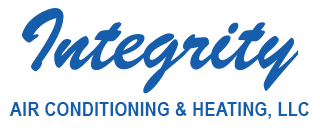
Did you perform a double take when you took a look at your last energy bill? Even though high energy bills can be the consequence of severe weather conditions, persistently high bills can quickly suggest an inefficient HVAC system or your home is misusing energy because of other means, including drafty windows or inadequate insulation.
One of the simplest ways to determine whether your home is wasting energy is by calling a home service professional to perform a home energy audit, also referred to as a home energy assessment. Keep reading to learn all about home energy audits, including what they are and their advantages.
What Is a Home Energy Audit?
An energy audit is a comprehensive inspection of how much energy your home uses and whether – and where – your home could be losing or wasting energy. An inspector will go through past energy bills while completing an energy audit to find out where energy is being used and how much.
The general goal of an energy audit is to help homeowners save money on their energy bills by suggesting energy-efficient renovations, which might include exchanging your existing HVAC system, adding new insulation, plugging up leaks, or replacing loose windows.
Over the course of the energy assessment, the auditor also completes an inspection of the outside and inside of your home. The auditor performs a blower door test on doorways, windows and fireplaces to determine if there are air leaks in your home. They’ll also check your home’s HVAC system, which also includes the ductwork, the water heater, and the insulation in your attic. Comprehensive assessments could also include checking your current lighting system.
Benefits of a Home Energy Audit
It can be difficult for the typical homeowner to know for certain how efficient their home is in comparison to other similar homes in their area. However, lots of energy companies often offer information about where your home ranks when compared with similar homes and whether it’s more efficient, about average, or inefficient versus your neighbors’ homes. This can be a useful starting point to figure out if you need an energy audit scheduled.
A few of the benefits of a home energy audit include:
Learning How Efficient Your Home Is
It’s beneficial to learn more about how efficient your home is and where you’re consuming the most energy. For example, if your ducts are leaking, it will cause a significant increase in your energy bills and increased wear and tear on your HVAC system since it has to stay on longer to properly heat or cool your home.
Making Energy-Efficient Improvements
An energy audit can expose where you need to make energy-efficient changes to cut back on energy and decrease utility bills. This may include replacing worn-down weatherstripping or installing a new energy-efficient furnace.
Enhancing Health and Safety
Allowing air to slip into your home through doors and windows, or as a result of a lack of insulation can cause excessive moisture to build up, which can negatively affect your home’s humidity levels or lead to mold. This can cause health issues, especially for people suffering from asthma or allergies.
Increasing Your Home’s Retail Value
Energy-efficient homes are sought after by homebuyers. You can sell your home much faster or for more money by telling potential buyers that it’s energy efficient.
How to Complete an Energy Audit of Your Home
Although completing an energy audit on your own might not be as comprehensive as choosing a professional, it’ll offer you a generalized sense of how energy efficient your home is. If you don’t discover any issues during the DIY test, then you likely don’t need to call in a professional. Try this step-by-step checklist:
- Review your HVAC system. Damaged ducts can lose as much as 20% of conditioned air, leading to more expensive energy bills and greater strain on HVAC equipment. If you notice leaks, use duct tape to seal them. If your HVAC equipment is old and wearing down, upgrading to a new system can save you a substantial amount on your energy bills. In some cases, it is better to call a reputable HVAC company to inspect your system.
- Watch for signs of air leaks. Air leaks on average can raise monthly energy bills by 10 to 20%. Inside, look for air leaks in areas where there is a draft, including along the edge of flooring and near baseboards and electrical outlets. Outside, you can look for air leaks in the home’s foundation, siding and mortar. Plug, caulk or seal any air leaks to save money.
- Inspect insulation. If your home is older, it could mean your insulation is too. If you can see the joists, you likely need more insulation.
- Check ventilation. Ensure that all of your kitchen and bathroom exhaust fans are spinning properly, and look for evidence of rot or moisture.
Contact Integrity AC & Heating LLC for a Professional Energy Audit
If you are interested in professional help figuring out how energy efficient your heating and cooling equipment is, contact the HVAC pros at Integrity AC & Heating LLC today. We’ve proudly serviced the residents of Phoenix with quality home services for many years. Contact us today to set up an appointment.


